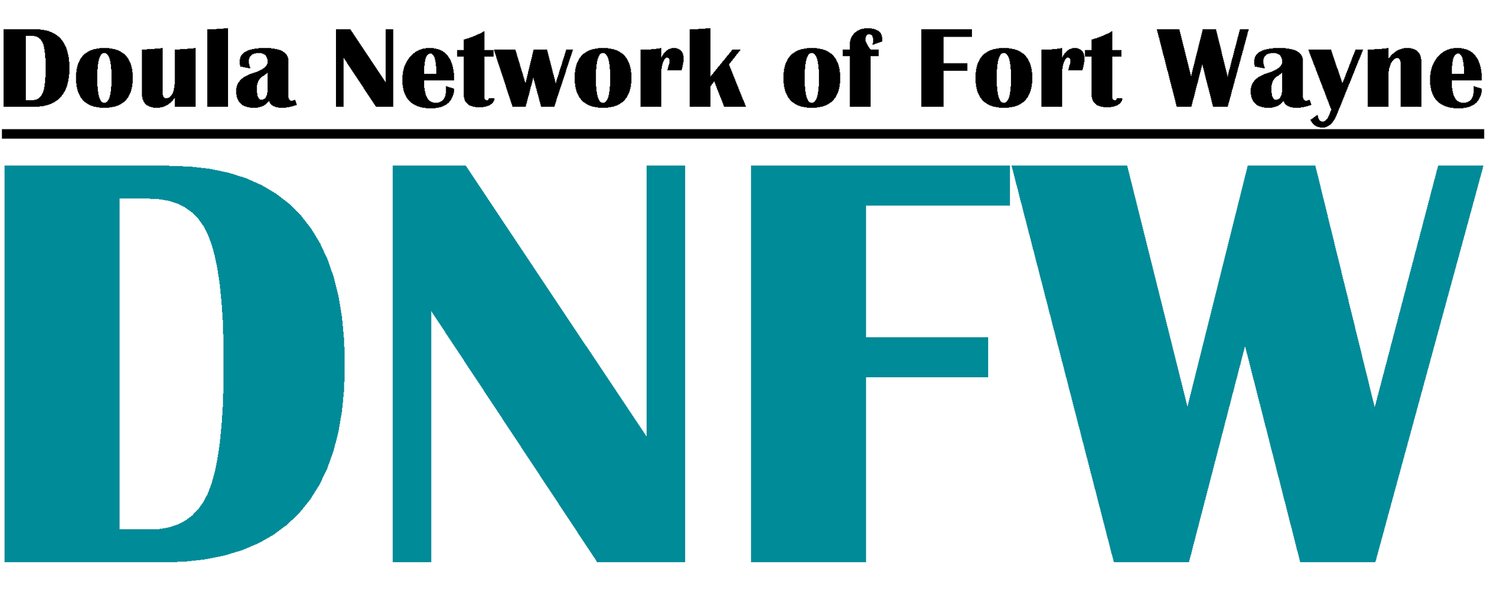DNFW represents a variety of doulas, from a variety of certifying bodies and training backgrounds, and from a variety of cultural practices, lifestyles, and beliefs. We recognize the unique contribution of each individual, and the nuance associated with a role that can vary with each client and birth.
THE ROLE OF THE DOULA
Services Rendered
The doula’s role encompasses the duration of hire by each individual client, from pregnancy, through labor and birth, and into postpartum.
Birth doulas accompany the birthing family and provide appropriate emotional support. While doulas do not make decisions for their clients, they assist each family in obtaining the information they need to make informed decisions. Ideally, the doula will establish relationships with the families they serve during the prenatal period and help the family prepare for their birth. Doulas provide physical and emotional support during the early postpartum time as well, and ensure that each family is connected with any additional services they may need or want. It is the responsibility of the doula to be clear to the family about the doula’s role at the birth.
Postpartum doulas provide support for families during the postpartum time frame. Doulas will provide assistance with emotional and/or physical recovery after birth, household tasks, meal preparation, cleaning, newborn care, sibling adjustment, and other tasks as they align with the needs of the family.
Doulas are not medical professionals. The role of a doula does not include medical assessments or providing medical advice. Doulas do help the birthing or postpartum family gain desired information, through medical professionals or credible sources, to help the family make their own decisions.
Advocacy
A doula is an advocate for the birthing or postpartum family. A doula advocates by assisting the family to gain clear and relevant information from credible sources, by encouraging the family to ask questions of their care provider(s), and by facilitating and encouraging positive relationships between the family and the care provider(s). The doula does not advocate by speaking for or instead of the client, or by making medical decisions on behalf of the family.
Referrals
Situations may arise in which the family has needs beyond the doula’s training or experience, or in which the doula is not a good fit for the family. In these cases, the doula will provide appropriate referrals to the family.
Continuity of Care
It is the responsibility of the doula to provide access to adequate back-up services should the doula not be able to attend to the family or if the doula feels the need to discontinue services to the family. The doula may accomplish this by securing an appropriate back-up doula; providing adequate referrals for the family to select a back-up or new doula; and/or following up with the family to ensure that the back-up or new doula is meeting their needs.
TRAINING AND EXPERIENCE
Training
Doulas will complete the training required by their training organization, or adequate self-study to prepare them to meet the needs of families in our community. Doulas will additionally keep themselves current on research and information pertaining to the family.
Experience
Doulas will complete the experiential requirements of their training organization, or adequate experience to meet the needs of the families in our community.
Maintenance of Certification
DNFW does not require member doulas to be certified, as there are many training organizations that do not provide certification, and there is no universal certifying body for doulas. We do, however, ask that doulas who choose to become certified remain in good standing with their certifying body. DNFW further asks all doulas, regardless of certification status, to remain up to date on current research pertinent to the role of the doula.
